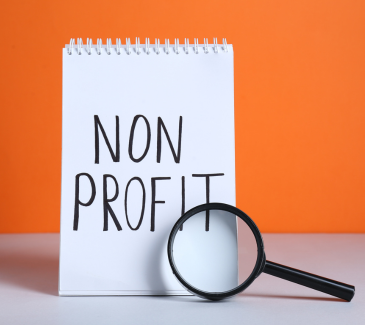Small Business, Are You Ready?
When a business or a non-profit organization decides to seek funding, whether a grant, venture capital or even a company decides to seek money through an IPO (Initial Public Offering), an essential question bellows — are you ready?
Preparation requirements, especially registrations, vary for non-profits more than for businesses, but much of the groundwork for forming a team is similar. First and foremost, any alliance seeking funding knows who they are and what they need. Solidarity and consistency with the endeavor’s goals and objectives are vital for obtaining funds and the organization’s overall success.
Is the business or organization leadership congruent with the plans on how to use and manage the funding? Notice of a grant award or funding approval is exciting and a reason for celebration.
However, leadership must have a team to manage the funding and prepare reports to the grantor or funder. Does the administration have the tools for the awarded grant, such as software, processes, and knowledgeable and trained team members?
All funders, those who award money, invest money, and philanthropists want assurance and gain a sense of feeling that their money is going towards a great cause. How often have you heard the phrase, “here today and gone tomorrow?” A funder wants to know if the business or organization is sustainable. Does the entity have long-term and short-term goals? What are the mission, purpose, and vision statements, and what are the core values? If an organization or business does not have these in place, it is a huge red flag to a potential funder. An investor wants to see their funding put to good use for a long time. Furthermore, they want to see a match between the organization’s mission and objectives and their own.
Sustainability and trust are two different terms, yet they go hand in hand. When an organization receives financial reward from a funder or investor a relationship, it enters into a relationship. And all relationships begin with a level of trust. The trust starts with sharing all data, backgrounds, and expertise of the team and with a shared mission that the funding will go towards meeting and addressing that shared vision.
A new business that decides to seek an SBIR or STTR grant needs to complete additional registrations:
Obtain a Unique Entity Number (UEI) or the Entity ID. On April 4, 2022, the federal government stopped using DUNS numbers.
- The SBIR and SBA replaced the DUNS number with a new, non-proprietary identifier provided by the System for Award Management (SAM.gov). It is a Unique Entity Identifier (UEI). To find or request a Unique Entity identifier, please visit www.sam.gov.
- Register with the Small Business Administration (SBA). First, obtain your UEI from sam.gov, which your SBA requires for registration. Visit their website, https://www.sbir.gov/registration2 Although not a genuine requirement, contact your local SBA office for guidance and support.
A new non-profit organization needs to obtain 501c3 status for their organization. There are other non-profits, but the 501c3 is best for charitable non-profits. As always, seek the counsel of an attorney on the best non-profit status for your new organization. Is the community involved in your endeavors?
At Brad G. Philbrick & Company, we will assist you in grant readiness. We work with your team to ensure that the funding you seek from a grantor or investor aligns with your company goals. We don’t chase money; we chase your dreams! It bears repeating that all endeavors begin with a high level of trust. We work to gain confidence, build trust, and seek to grow your business or organization while providing valuable service to the funder. Building on these critical elements ensures a successful endeavor and a fulfilled and joyful funder.











































































